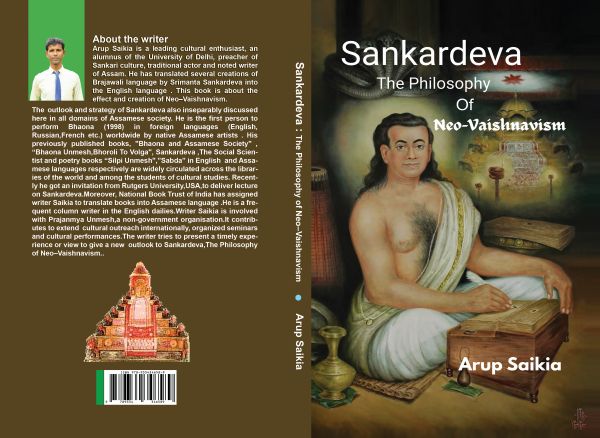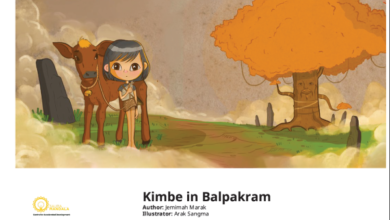Vaishnavite ideals of Sankardeva that brought Assam together

Samiran Bhuyan
Noted writer and Bhaona artist Arup Saikia wrote and published a scholarly book, Sankardeva: The Philosophy of Neo-Vaishnavism, which highlights the socio-religious views of the reformer.
Sankardeva nurtured religion and philosophy on an inclusive journey to advance human civilisation in the world with love and brotherhood. The culture is nothing but morality-oriented thinking or expression. This is the main philosophy of neo-Vaishnavism.
Vaishnavism existed even in the past. But neo-Vaishnavism is a research work from the Assamese perspective. The present Assamese community is based on the ideals of the great sage who awakened the thoughts and consciousness.
Religious reconstruction
Saikia depicts the reality and outlook of Sankardeva in his book. The book serves the people with the thought of God in an environment surrounded by millions of devotees created by Sankardeva. So, Sankardeva became an institution run by consciousness, and that inspires every generation with his ideals.
(Also read: New book focuses on Sankardev’s philosophical works)
The slightest human limitation of Sankardeva cannot be a barrier to the achievement of his immense success. Some of his rumoured supernatural deeds overcome his limitations among the common masses.
Sankardeva spent his entire life struggling against immorality, inequality and introduced the religion of heaven. The Vaishnavite priests are carrying it forward. The goal and objectives of Sankardeva are world civilisation and human welfare. But the rustic situation of Assam would not create a congenial environment to demonstrate anything sans religion.
Both Sankardeva and Madhavdeva accepted all incarnations of Lord Krishna. The direct worship of Krishna is the path of this religion. They open-heartedly recognised the significance of Hindu religious books, like the Mahabharata, the Ramayana, the Bhagawat Gita and the Vedas.
Saikia’s analytical insights into the religious principles of Sankardeva are logical. What we are seeing may not be true. Religious beliefs are always abstract in sense. It is non-tangible. The point of the arrow can be directed in any direction in open space. The literal explanations of rituals are imaginary and impractical. There’s a lot of scope for utilities.
The author stresses the benefit-oriented project. This is religion in another attire. “Sankardeva is an efficient diplomat, although he is seen as a religious preacher,” he writes. Why did Sankardeva act like this? Sankardeva would not have succeeded in any revolutionary reformation in the Assamese milieu without religion. The casteless society is a product of the open competitive market. The social environment was challenging for practising social equality.
Saikia describes the various techniques Sankardeva incorporated to attain the goal of humanity.
Book: Sankardeva: The Philosophy of Neo-Vaishnavism: Author: Arup Saikia; Publisher: Prajanmya Unmesh; Pages: 180; Price: Rs 450
(The author is a contributor)





